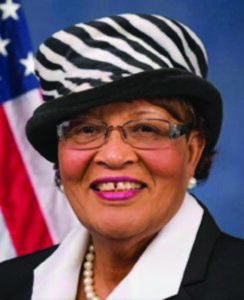Are Black women in N.C. part of the abortion rights debate?
By Cash Michaels, Peacemaker Senior Contributor / May 19, 2023Last Saturday, while most North Carolinians were enjoying a muggy, cloudy Saturday before Mother’s Day, Democratic Gov. Roy Cooper was making national news, defiantly vetoing the 12-week abortion restriction bill passed by the Republican-led N.C. General Assembly just days before.
“This bill will create dangerous interference with the doctor-patient relationship, leading to harm for pregnant women and their families,” Cooper said to hundreds of demonstrators. “With its medically unnecessary obstacles and restrictions, it will make abortion unavailable to many women, particularly those with lower incomes, those who live in rural areas, and those who already have limited access to health care.”
By Tuesday, May 16, the GOP majority in the N.C. Legislature voted to override Gov. Cooper’s veto.

Sen. Kandie Smith
In the midst of this hyper-sensitive political tug-of war over women’s right to choose in North Carolina, where do African American women stand?
“We were not invited to the table,” opined state Sen. Kandie Smith (D-Greenville) during floor debate last week. “We were not considered when it comes to what do you think would be good. To me, it’s like my voice doesn’t matter.”
Sen. Smith continued, “Black women have been fighting for freedom of their body since slavery. We’re placed back in the situation where someone is trying to tell us what to do with our bodies. We’ve been fighting against that long enough. That is not okay.”
For Black women, the subject of maternal health is one of survival, researchers say, so much so that they are three times as likely to die of pregnancy-related causes than White women, according to the U.S. Centers for Disease Control and Prevention (CDC).
Regarding abortion, many Black women of childbearing age are not as free as their White counterparts to decide whether to carry a child to term or not because of socioeconomic and health justice issues, abortion rights activists say. Not making a living wage, not having health insurance, not having access to safe contraception, not having access to adequate non-racist health care were just some of the factors involved in determining whether a low-income women of color decided whether or not to give birth.

N.C. Congresswoman Alma Adams
In 2019, Black women had the highest rate of abortions nationally at 23.8 per 1,000 women, according to the CDC.
When the U.S. Supreme Court overturned Roe v. Wade in June 2022, many of those activists warned that Black and other women of color would be disproportionately affected by the ruling overturning a woman’s right to choose in states that did not already specify that right.
And in North Carolina, Black women still account for the state’s high maternal death rate.
Given that staggering reality, African American women like Sen. Smith, state Senator Natalie Murdock (D-Durham), and even N.C. Congresswoman Alma Adams (D-NC-12), spoke out when it was clear that Republicans in the N.C. General Assembly were going to impose strict abortion restrictions.
“Even without the reality of the maternal health crisis, the Republican abortion ban is wrong,” Rep. Adams said in a statement when the Republican abortion restriction was first introduced.
“It devalues the hard work of pregnancy, which should always be voluntary. It dehumanizes women by taking away their bodily autonomy. Involuntary servitude is expressly prohibited by the 13th Amendment to the Constitution; legislation that forces the work of pregnancy, regardless of injury or death, should always be unconstitutional, and this bill should fail.”
And even clergy, like Bishop William Barber of Repairers of the Breach, called Republican legislators “extremists” for imposing a law that restricts abortion rights, at the same time they lift all restricts for obtaining and owning a firearm.
“It is absolute hypocrisy to say you care about life and then you write a law that puts poor and low-income women’s lives in jeopardy,” Barber recently said.
If a Gallup poll from Sept. 2020 is any indication, Black lawmakers like Rep. Adams, or leaders like Bishop Barber are not alone in claiming African American females have the right to choose as well.
From 2017-2020, 46 percent of African Americans polled agreed that abortion was “morally acceptable.” That is a significant jump from the 31 percent polled from 2001 to 2007.
Given all the available data, African American women have a rightful place in the abortion rights debate, because the decision on whether or not to have a child could mean their very lives.







